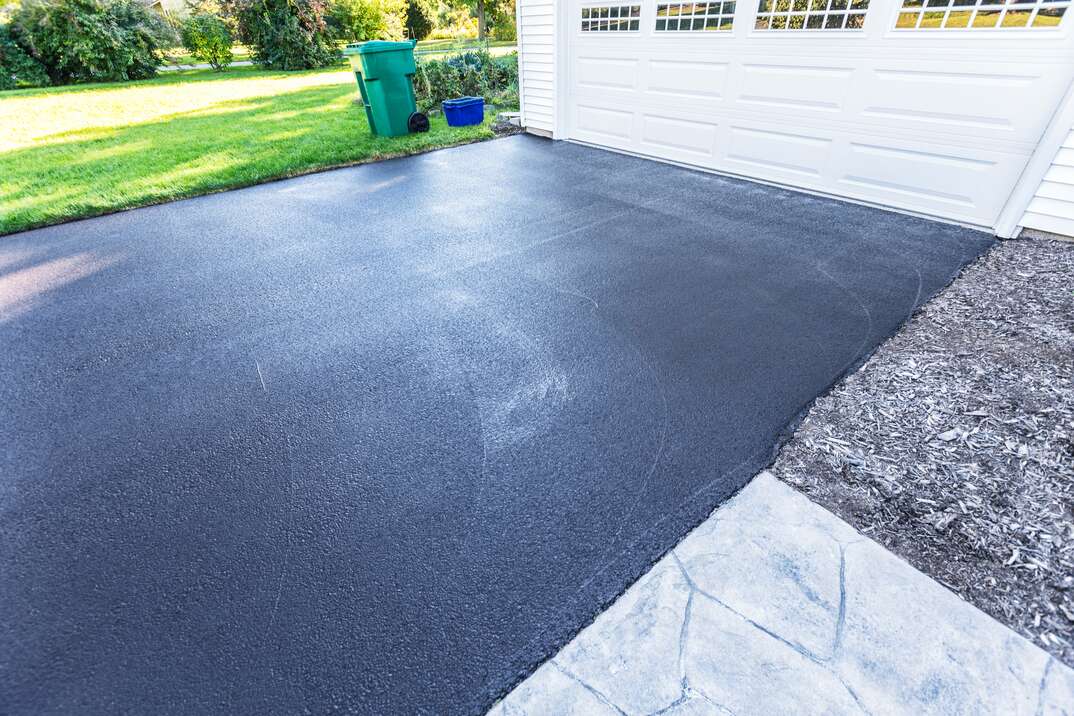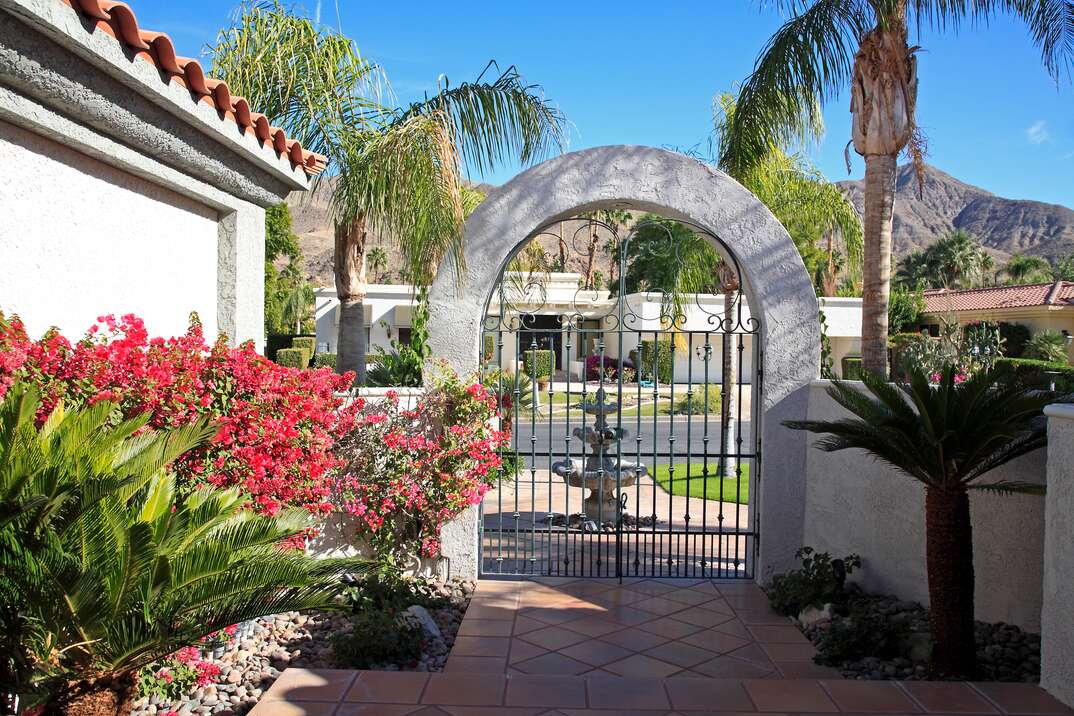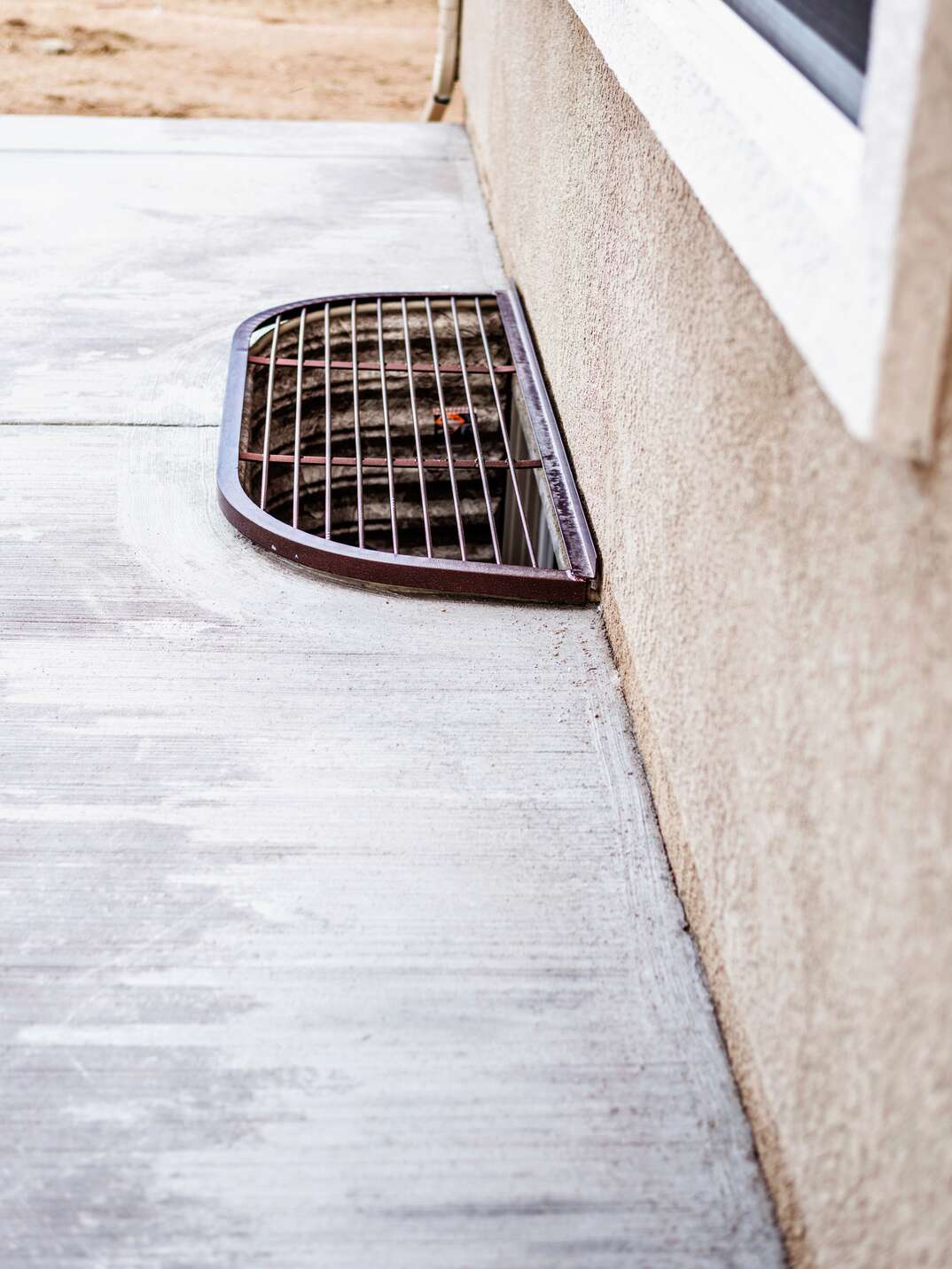How Much Does an Asphalt Driveway Cost?

Asphalt Driveway Costs at a Glance:
- Installation: $3-$5 per square foot
- Compare with concrete: $8-$18 per square foot
- Compare with gravel: 50 cents+
- Two-car driveway total cost: $1,900-$3,200
- Resealing: $1-$2 per square foot
When it comes to paving your driveway, there are many different paths you can take. Two top considerations in deciding are budget and durability. With that in mind, an asphalt driveway is a popular and affordable option.
This May Also Interest You: Dreaming of a Heated Driveway? Here’s What You Need to Know Before Installing One
Read on for costs, comparisons and everything else you need to know as we pave the way for you to decide whether an asphalt driveway is the way you want to go.
Is Concrete or Asphalt Cheaper?
Homeowners asking this question often are focusing on upfront costs of materials or total initial investment. According to Thumbtack, the national average for asphalt paving is $3 to $5 per square foot, compared with the $8 to $18 per square foot for concrete paving. These averages are helpful when trying to get a ballpark estimate.
However, it’s important for homeowners to keep the costs of ongoing maintenance in mind, including for their driveway. For asphalt driveways, that maintenance will require surface resealing every two to five years, depending on climate and level of use. The Concrete Network says the current national average for sealing asphalt ranges from $1 to $2 per square foot. Sure, dedicated do-it-yourselfers can save some coin by doing the sealing work themselves, but the tradeoff will be time and hassle. DIYers should take care not to underestimate the amount of time the job takes. Be aware that using low-quality products could result in the need for more frequent maintenance.
By comparison, concrete driveways also require maintenance, though that work is typically cheaper, in the form of spot cleaning to remove oil stains and other such blemishes. Power washing is the common approach to this type of concrete maintenance.
What About Repairs?
Your asphalt driveway may hold an advantage, here, over concrete. By the time a concrete driveway needs repairs from settling or gapping, partial or total replacement is necessary, as concrete driveways don't get resurfaced. That said, a concrete driveway may last 50 years or longer before drastic repairs are needed.
Asphalt driveways, by comparison, can be resurfaced, generally saving the homeowner money on upkeep. That upkeep, however, is needed far more frequently compared to concrete driveways.
When Is an Asphalt Driveway Not a Good Idea?
In areas of the South, where temperatures are generally on the hotter side, concrete driveways are a better option. Asphalt — or “blacktop” — is a petroleum-based product, and due to its black color gets much hotter than concrete in warmer climates. The hotter blacktop gets, the more viscous and malleable it becomes. Motorcycles might sink their kickstands through the surface of hot asphalt and simply tip over, while the weight of heavier vehicles could leave tire dents in the pavement where they’re parked. If you’re new to an area, it might be a good idea to take a look around at the homes nearby and note the pavement material your neighbors are using.
But wait, you say ... aren’t highways made of asphalt even in hotter climates? Yes, but there’s a difference between the blacktop used on driveways and the asphalt used on major highways. Highway asphalt is much thicker and has an underlayer designed for heavy use — and, most importantly for your purposes as a homeowner — has its own crew to take care of maintenance.
How Many Years Will an Asphalt Driveway Last?
As with most materials, your mileage will vary with use, climate, maintenance and, of course, the expertise of the installer. Best-case scenario is a lifespan of 25 to 30 years for asphalt driveways. While homeowners enjoy a lower cost initially for blacktop driveways, they should budget for resurfacing or replacement over a shorter time period versus concrete driveways.
More Related Articles:
- How to Resurface Your Asphalt or Blacktop Driveway
- How Much Does a Heated Driveway Cost?
- Kick Asphalt Costs to the Curb: A Gravel Driveway Is Cheaper
- How Much Does Driveway Sealing Cost?
- Splash Course: How to Use a Power Washer
How Thick Should an Asphalt Driveway Be?
A 2-inch thickness is the standard for most blacktopped two-car driveways and, for most homeowners, that's sufficient for their needs. If there are heavier vehicles, RVs or equipment being parked on the driveway, more asphalt may be needed. Proper grading and underlay work is the key to longevity, so unless you’re confident in your skills, here’s where you’ll want to consider consulting a pro.
How Much Does It Cost to Pave a Two-Car Driveway?
Because asphalt is a petroleum product, prices rise and fall with the oil market. The average $3 to $5 per square foot price could fluctuate. That said, you may want to budget $5 to $7 per square foot to make sure you don’t go over your limit. You should also factor in any local building permits and drainage requirements.
The average two-car driveway is about 640 square feet, Between materials and labor, the national average cost of the job is between $1,900 and $3,200, but you may want to budget up to $5,000 for the project.
Plan ahead for the project. If you’re replacing an existing driveway or upgrading for improved access to your garage, you’ll need to plan to park your car somewhere else during construction.
What's a Cheaper Way to Build a Driveway?
Loose, bulk materials are common alternatives homeowners can look to when budgets are tight, yet driving in mud remains undesirable. HomeGuide says gravel can cost as little as 50 cents per square foot. Plus, comparable materials like crushed stone, concrete and asphalt can be found in some areas.
A base layer of crushed stone and some kind of edging material will help stabilize the gravel on the surface. If these reinforcement measures aren’t in your budget, at the very least, you should compact the gravel into the surface of the soil to keep the material in place as you drive over it.
Do Gravel Driveways Last Long?
With loose-material driveways, the need for maintenance is going to be more frequent to prevent mud holes and low spots. Backfilling low areas to maintain vehicle clearance and leveling for drainage will be a regular part of ongoing maintenance.
Keep in mind that smaller-diameter stones and gravel can lodge themselves into your tire treads. These pebbles and shards commonly fling free of the tire when you reach higher speeds on the road and can ding your car paint. Look for gravel sizes big enough to drive on while minimizing potential paint damage to your vehicle.

.jpg)
